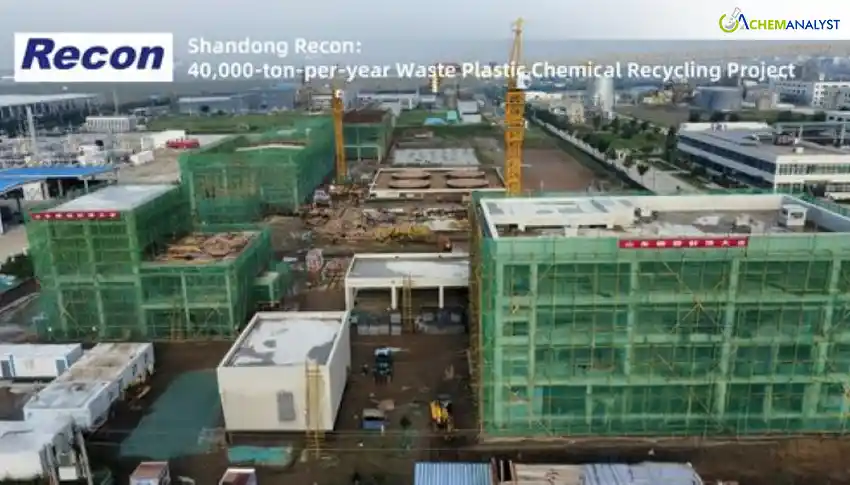Welcome To ChemAnalyst

This initiative, with a $15 million investment, is poised to address "white pollution" by converting difficult-to-recycle waste plastics into valuable products like pyrolysis oil and carbon residue.
Recon Technology, Ltd. announced a major achievement on August 25, 2025, with the successful completion of the main manufacturing plant for its Shandong Recon Renewable Resources Technology's waste plastic chemical recycling project at Weifang, Shandong, China. This milestone signifies a pivotal shift from construction to the final phase of equipment installation and commissioning, bringing the company closer to its goal of commercial production.
With an investment exceeding $15 million, the "Recon Plastic Chemical Recycling Project" is a significant step towards tackling the global issue of plastic waste. The 50-acre facility, upon completion, will feature six pyrolysis units, two distillation units, and comprehensive environmental protection systems. The project is on track for full completion by November 2025, with a one-month trial operation slated for December 2025, in strict compliance with domestic regulations.
The plant is projected to have a substantial annual output, producing 30,000 tons of plastic pyrolysis oil and 6,000 tons of carbon residue. This production is expected to generate an estimated $30 million in annual returns, demonstrating the economic viability of converting waste plastics into high-value resources. The company is already in advanced discussions with several multinational and domestic chemical industry leaders, with product purchase and strategic cooperation agreements already in place to explore the diverse applications of the high-value pyrolysis oil.
A core strength of this project lies in its technological innovation. The facility utilizes a dual-process approach combining catalytic pyrolysis and catalytic reforming. For the first time, Recon is employing a "horizontal screw-type three-stage continuous reactor" in its pyrolysis process. This addresses a common technical challenge in traditional plastic recycling: coking. By preventing plastic coking, the new technology ensures a stable and continuous feedstock supply, a crucial factor for efficient operations. Furthermore, the inclusion of catalytic reforming boosts the olefin content of the pyrolysis oil, significantly increasing its market value and competitive edge.
According to Yin Shenping, the CEO of Recon, the completion of the main structures is a testament to the team's efficient execution and a firm commitment to advancing the industrialization of chemical recycling. Shenping emphasized that the project's core process has undergone rigorous scientific and technological evaluations, as well as safety and reliability verifications, establishing a solid foundation for safe and stable operation.
Looking ahead to the rest of 2025, the company's primary focus is on ensuring a smooth commissioning process and stable production of high-quality products. Recon aims to transform the Shandong plant into a global benchmark for continuous plastic chemical recycling.
We use cookies to deliver the best possible experience on our website. To learn more, visit our Privacy Policy. By continuing to use this site or by closing this box, you consent to our use of cookies. More info.
